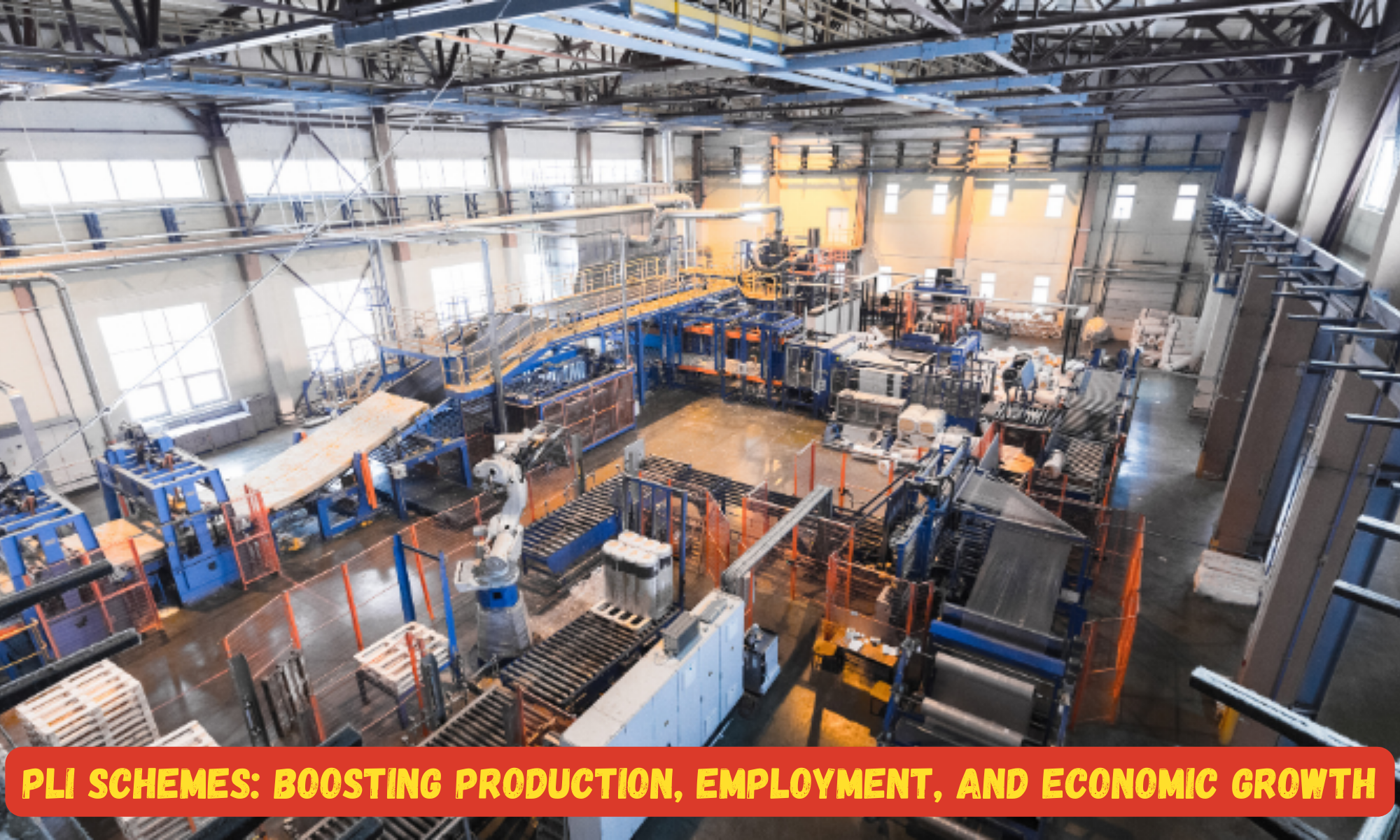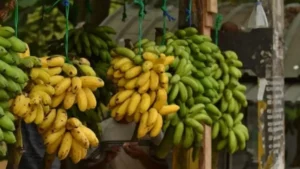PLI Schemes Contribution
The implementation of the Production Linked Incentive (PLI) Schemes in the country has led to significant positive outcomes such as increased production, employment generation, economic growth, and exports.
Buy Prime Test Series for all Banking, SSC, Insurance & other exams
During a press conference in New Delhi, Shri Rajesh Kumar Singh, Secretary of DPIIT, highlighted that the PLI Schemes resulted in a notable 76% rise in Foreign Direct Investment (FDI) in the manufacturing sector in the fiscal year 2021-22, reaching USD 21.34 billion, compared to the previous fiscal year’s USD 12.09 billion.
PLI Schemes: Promoting Self Reliance
- The PLI schemes, conceived by Prime Minister Shri Narendra Modi to promote self-reliance in India (AatmaNirbhar Bharat), are focused on 14 sectors and have an incentive budget of approximately Rs. 1.97 lakh crore (around US$ 26 billion).
- These schemes aim to enhance the production capabilities of the sectors involved and facilitate the emergence of global leaders.
- Sectors such as Drugs and Pharmaceuticals (with a 46% increase in FDI), Food Processing Industries (with a 26% increase in FDI), and Medical Appliances (with a 91% increase in FDI) have witnessed a surge in foreign investments from the fiscal year 2021-22 to 2022-23.
- The PLI Schemes have also facilitated a transformation in India’s export portfolio, shifting from traditional commodities to high-value-added products like electronics, telecommunication goods, and processed food.
- Currently, a total of 733 applications have been approved across the 14 sectors, with an expected investment of Rs. 3.65 lakh crore.
- Notably, 176 Micro, Small, and Medium Enterprises (MSMEs) have benefited from the PLI schemes, primarily in sectors such as Bulk Drugs, Medical Devices, Pharma, Telecom, White Goods, Food Processing, Textiles, and Drones.
Data Released on PLI Schemes
- As of March 2023, the actual investment realized stands at Rs. 62,500 crore, resulting in incremental production and sales exceeding Rs. 6.75 lakh crore and the creation of approximately 325,000 jobs.
- Additionally, exports have been boosted by Rs. 2.56 lakh crore until the fiscal year 2022-23.
- Around Rs. 2,900 Crore has been distributed as incentives during the fiscal year 2022-23 under the PLI Schemes for eight sectors, namely Large-Scale Electronics Manufacturing (LSEM), IT Hardware, Bulk Drugs, Medical Devices, Pharmaceuticals, Telecom & Networking Products, Food Processing, and Drones & Drone Components.
- The PLI Scheme has resulted in major smartphone companies like Foxconn, Wistron, and Pegatron shifting their suppliers to India. Consequently, high-end phones are now being manufactured in India. The scheme has also led to a 20-fold increase in female employment and localization in IT Hardware, specifically in the production of batteries and laptops.
The Secretary of the Department for Promotion of Industry and Internal Trade (DPIIT) stated that the value addition in mobile manufacturing in India has reached 20%. He added, “We have achieved a 20% value addition in mobile manufacturing within three years, whereas countries like Vietnam took 15 years to achieve 18% value addition, and China achieved 49% value addition over 25 years. From this perspective, it is a significant achievement.“
PLI Schemes Contribution in Various Sectors
- The PLI Scheme, along with the existing Phased Manufacturing Program (PMP), has contributed to increased value addition in the electronics sector and smartphone manufacturing, reaching 23% and 20% respectively, from negligible levels in 2014-15.
- Out of the total electronics production worth USD 101 billion in FY 2022-23, smartphones account for USD 44 billion, including USD 11.1 billion in exports.
- Import substitution of 60% has been accomplished in the Telecom sector, making India almost self-reliant in Antennae, GPON (Gigabit Passive Optical Network), and CPE (Customer Premises Equipment).
- The PLI Scheme has also led to a sevenfold increase in the turnover of the drones sector, benefiting all MSME startups.
- Under the PLI Scheme for Food Processing, there has been a significant increase in sourcing raw materials from India, positively impacting the income of Indian farmers and MSMEs.
- The Pharma sector has witnessed a substantial reduction in imports of raw materials due to the PLI Scheme.
- India is now manufacturing unique intermediate materials and bulk drugs, including Penicillin-G. Moreover, technology transfer has occurred in the production of Medical Devices such as CT scans and MRI machines.
List of PLI Schemes in India
- Key Starting Materials (KSMs)/Drug Intermediates (DIs) and Active Pharmaceutical Ingredients (APIs): Department of Pharmaceuticals
- Large Scale Electronics Manufacturing: Ministry of Electronics and Information Technology
- Manufacturing of Medical Devices: Department of Pharmaceuticals
- Electronic/Technology Products: Ministry of Electronics and Information Technology
- Pharmaceuticals drugs: Department of Pharmaceuticals
- Telecom & Networking Products: Department of Telecommunications
- Food Products: Ministry of Food Processing Industries
- White Goods (ACs & LED): Department for Promotion of Industry and Internal Trade
- High-Efficiency Solar PV Modules: Ministry of New and Renewable Energy
- Automobiles & Auto Components: Department of Heavy Industry
- Advance Chemistry Cell (ACC) Battery: Department of Heavy Industry
- Textile Products: MMF segment and technical textiles: Ministry of Textiles
- Specialty Steel: Ministry of Steel
- Drones and Drone Components: Ministry of Civil Aviation
Also Read: Pradhan Mantri Matru Vandana Yojana: Empowering Motherhood
Find More News Related to Schemes & Committees




 Which Lake is known as the Jewel of Udai...
Which Lake is known as the Jewel of Udai...
 Which is the Largest Banana Producing St...
Which is the Largest Banana Producing St...
 Shashi Tharoor Conferred Honorary D.Litt...
Shashi Tharoor Conferred Honorary D.Litt...








